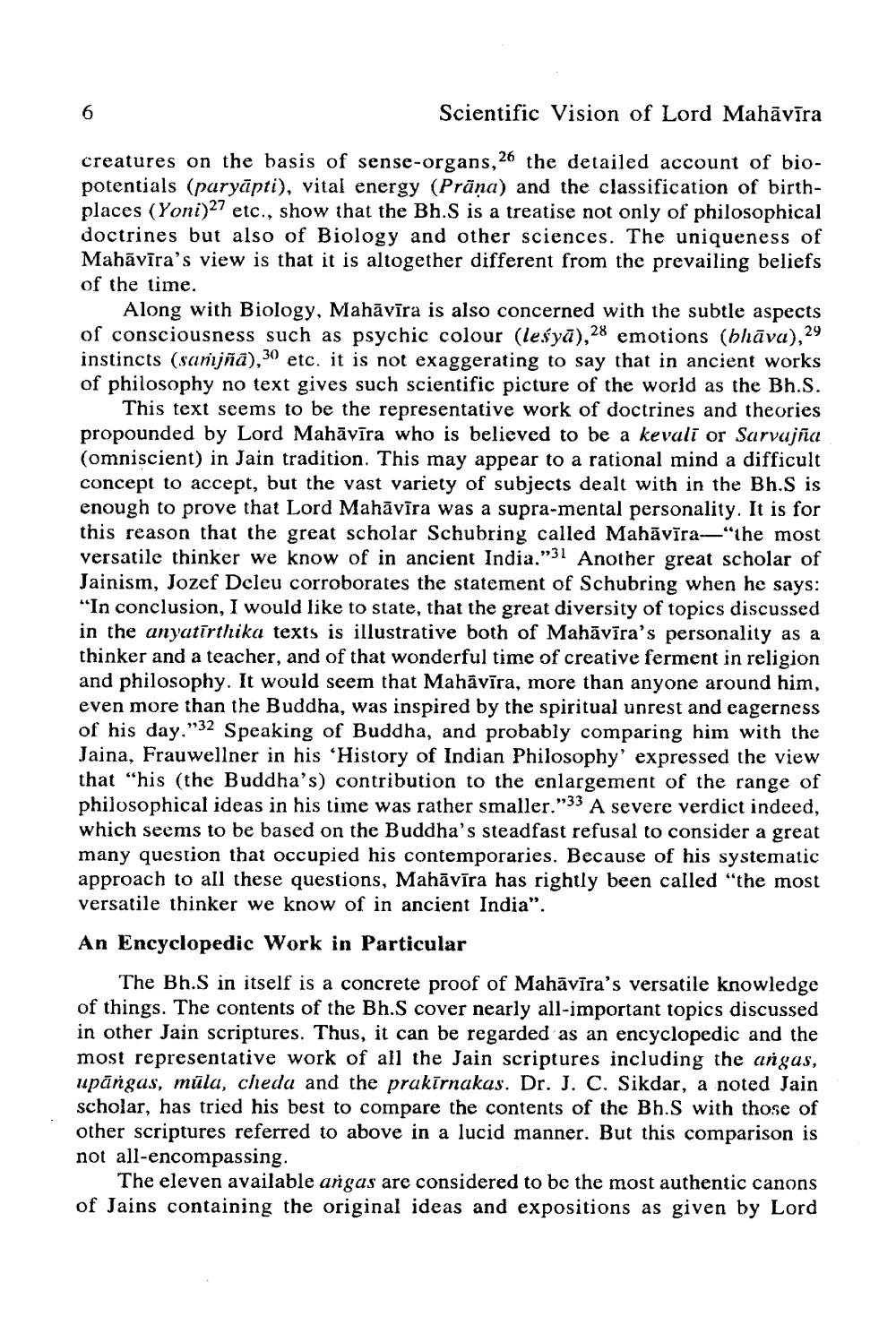________________
Scientific Vision of Lord Mahāvīra
creatures on the basis of sense-organs, 26 the detailed account of biopotentials (paryāpti), vital energy (Prāna) and the classification of birthplaces (Yoni)27 etc., show that the Bh.S is a treatise not only of philosophical doctrines but also of Biology and other sciences. The uniqueness of Mahāvīra's view is that it is altogether different from the prevailing beliefs of the time.
Along with Biology, Mahāvīra is also concerned with the subtle aspects of consciousness such as psychic colour (leśyā),28 emotions (bhāva),29 instincts (sanjñā),30 etc. it is not exaggerating to say that in ancient works of philosophy no text gives such scientific picture of the world as the Bh.S.
This text seems to be the representative work of doctrines and theories propounded by Lord Mahāvīra who is believed to be a kevali or Sarvajña (omniscient) in Jain tradition. This may appear to a rational mind a difficult concept to accept, but the vast variety of subjects dealt with in the Bh.S is enough to prove that Lord Mahāvīra was a supra-mental personality. It is for this reason that the great scholar Schubring called Mahāvīra—“the most versatile thinker we know of in ancient India.”31 Another great scholar of Jainism, Jozef Deleu corroborates the statement of Schubring when he says: “In conclusion, I would like to state, that the great diversity of topics discussed in the anyatīrthika texts is illustrative both of Mahāvīra's personality as a thinker and a teacher, and of that wonderful time of creative ferment in religion and philosophy. It would seem that Mahāvīra, more than anyone around him, even more than the Buddha, was inspired by the spiritual unrest and eagerness of his day.”32 Speaking of Buddha, and probably comparing him with the Jaina, Frauwellner in his ‘History of Indian Philosophy' expressed the view that “his (the Buddha's) contribution to the enlargement of the range of philosophical ideas in his time was rather smaller."33 A severe verdict indeed, which seems to be based on the Buddha's steadfast refusal to consider a great many question that occupied his contemporaries. Because of his systematic approach to all these questions, Mahāvīra has rightly been called "the most versatile thinker we know of in ancient India".
An Encyclopedic Work in Particular
The Bh.S in itself is a concrete proof of Mahāvīra's versatile knowledge of things. The contents of the Bh.S cover nearly all-important topics discussed in other Jain scriptures. Thus, it can be regarded as an encyclopedic and the most representative work of all the Jain scriptures including the angas, upāngas, müla, cheda and the prakīrnakas. Dr. J. C. Sikdar, a noted Jain scholar, has tried his best to compare the contents of the Bh.S with those of other scriptures referred to above in a lucid manner. But this comparison is not all-encompassing
The eleven available angas are considered to be the most authentic canons of Jains containing the original ideas and expositions as given by Lord




